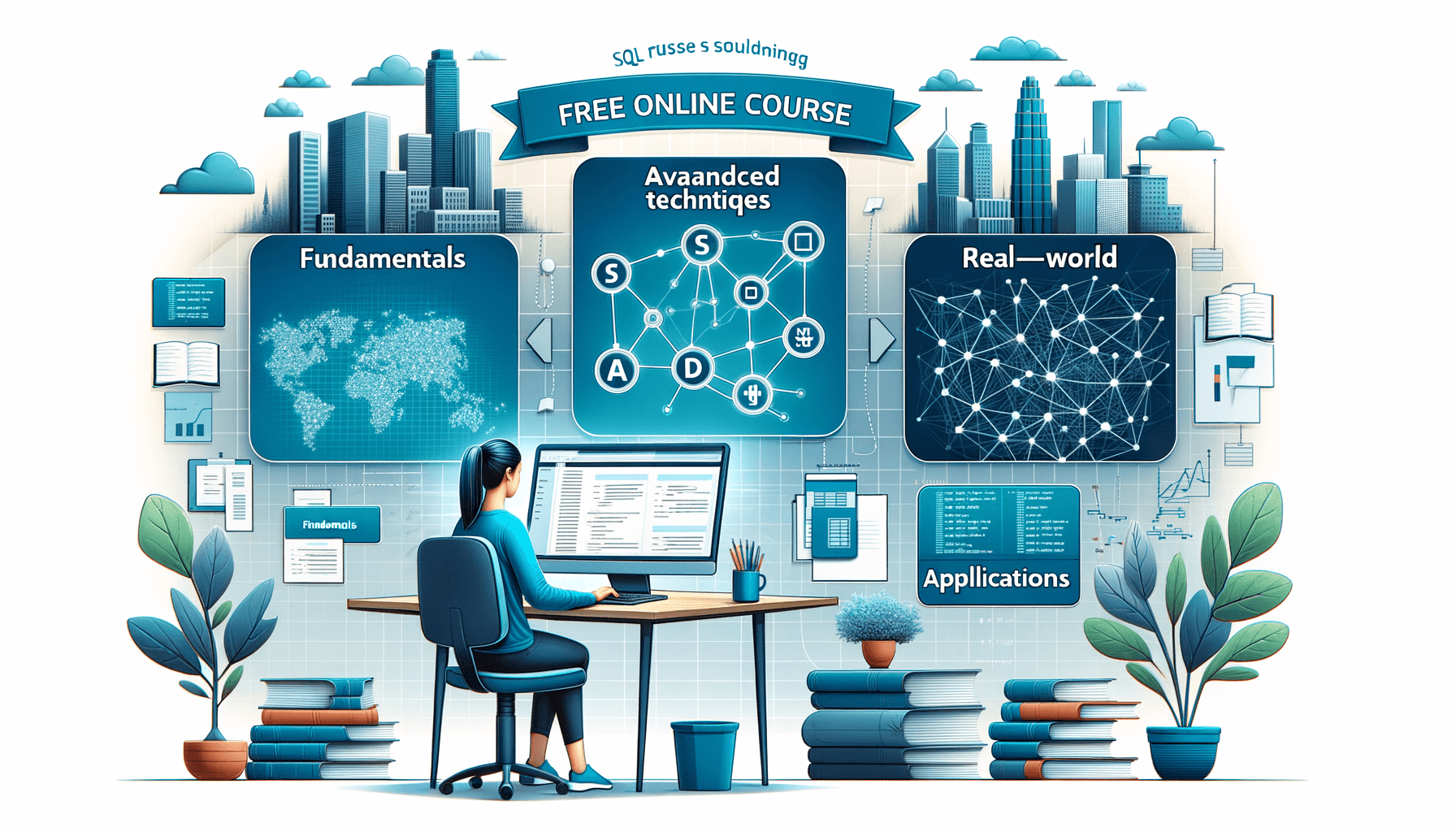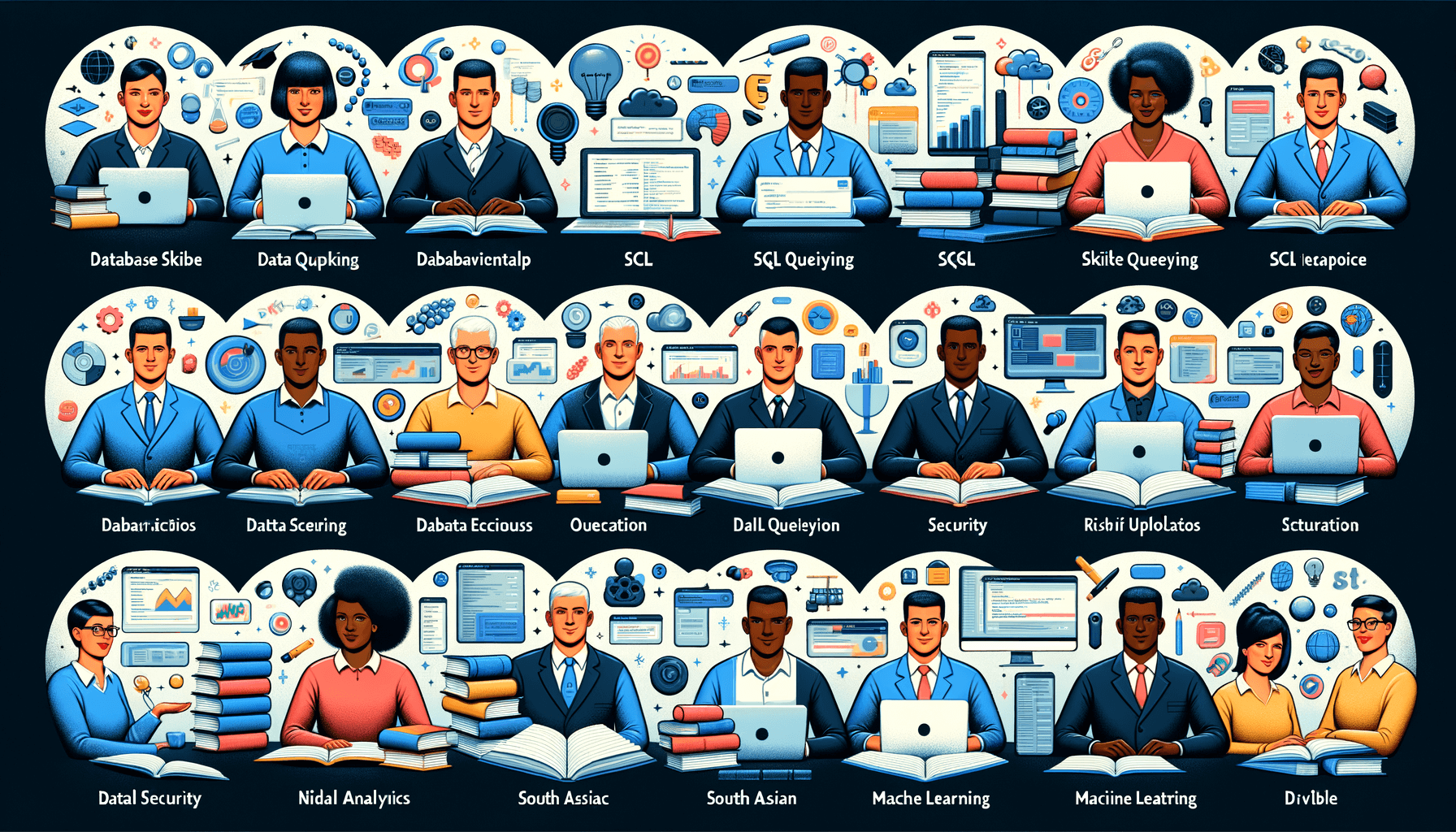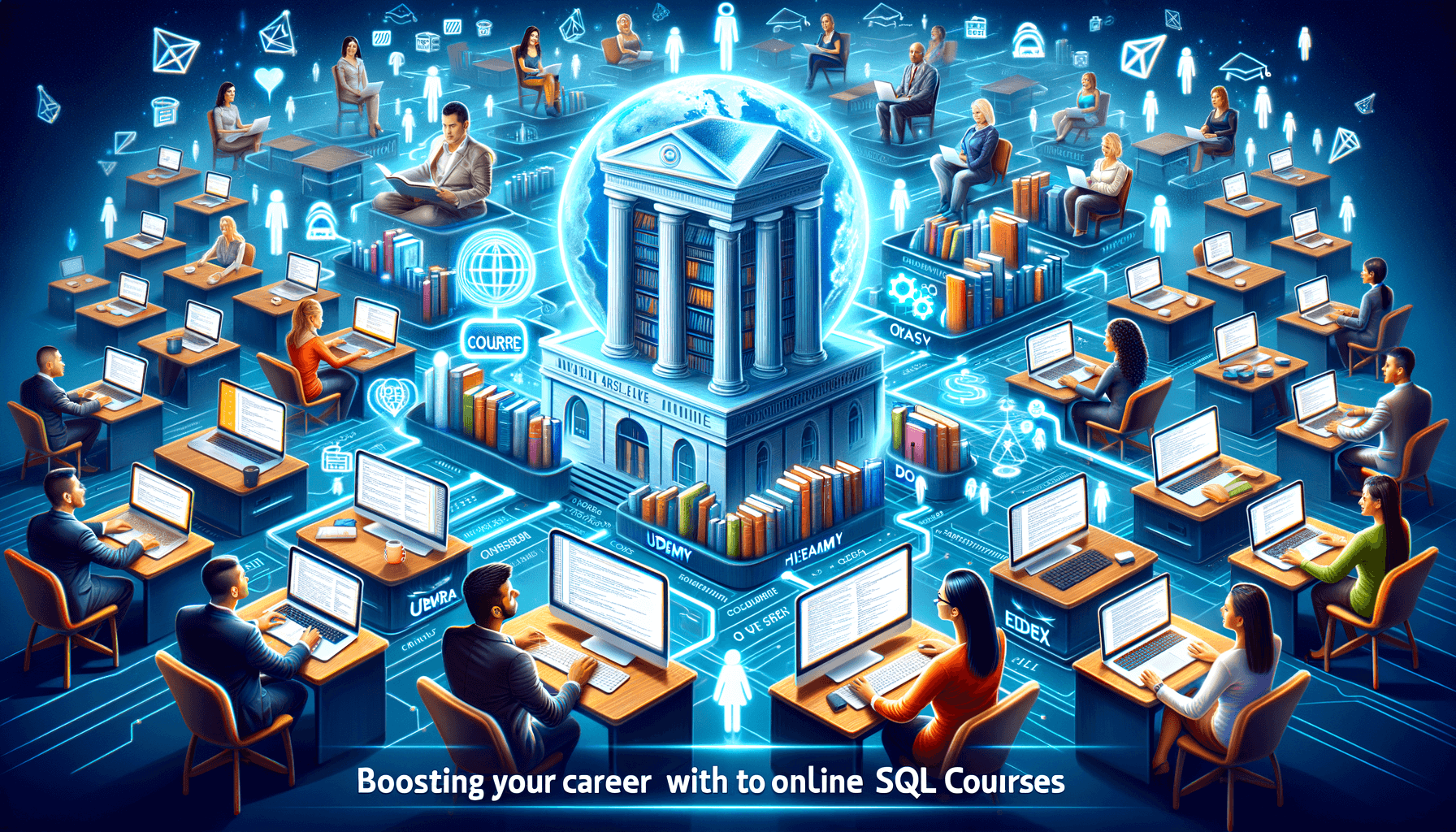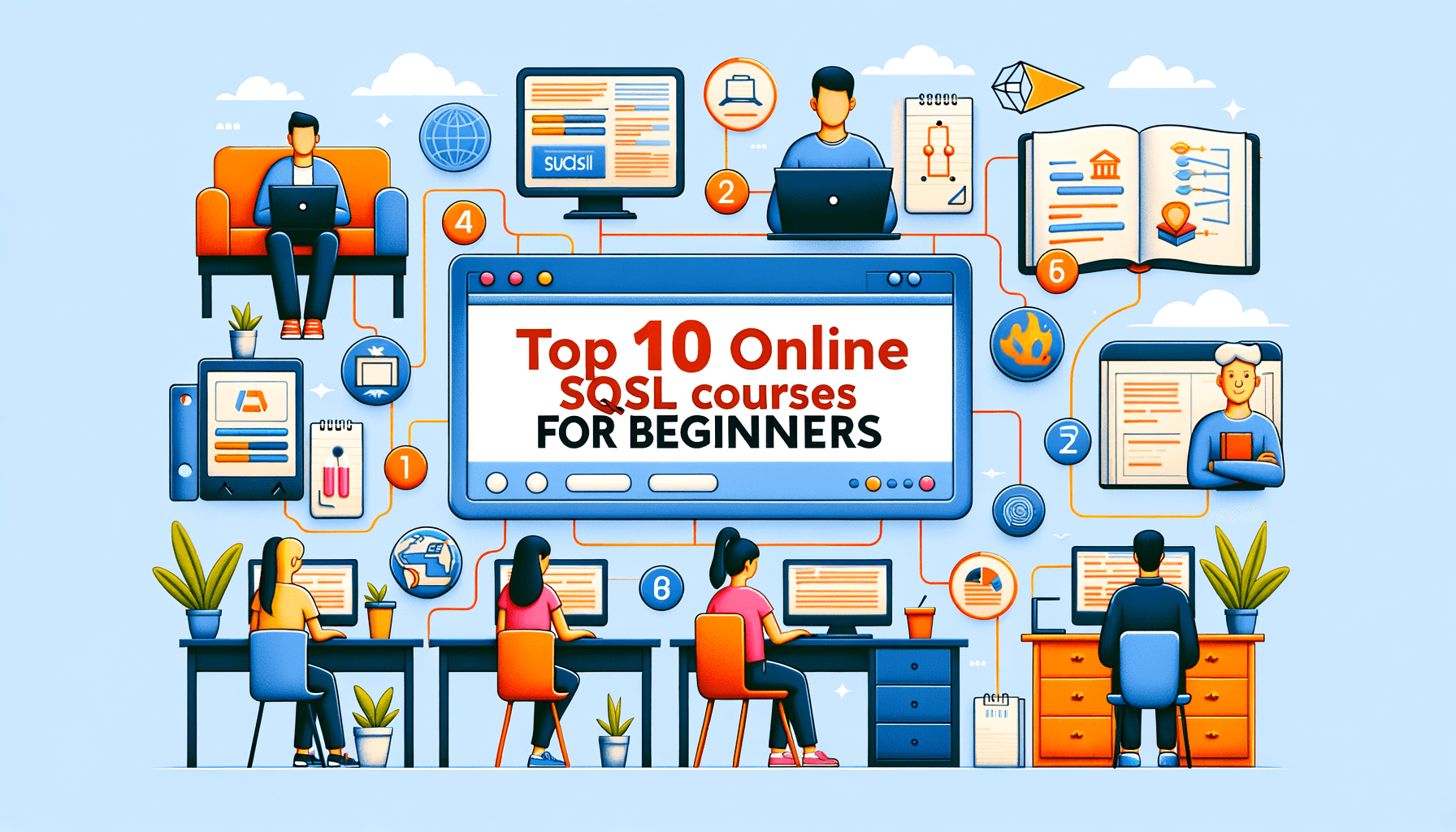A big variety of articles and resources

Master SQL with Our Free Online Programming Course
 Sia Author and Instructor
Learn SQL
Sia Author and Instructor
Learn SQL
8 minute read
Are you ready to dive into the world of SQL? Our free online programming course is designed to help you master SQL, whether you're a beginner or looking to improve your skills. With easy-to-follow lessons and hands-on exercises, you'll be able to understand and use SQL in no time. Let's explore what you'll learn in this course!
Key Takeaways
- Understand the basics of SQL, including syntax and simple queries.
- Learn advanced techniques like complex joins and indexing to optimize your database.
- Apply SQL skills to real-world scenarios such as database design and data visualization.
- Engage in interactive learning with hands-on projects and expert guidance.
- Explore career opportunities and certifications to advance your SQL programming skills.
Understanding the Fundamentals of SQL
Introduction to SQL Syntax
In this section, we dive into the basics of SQL syntax. Learning SQL syntax is the first step to becoming proficient in SQL. We will cover the structure of SQL statements, including SELECT, INSERT, UPDATE, and DELETE commands. Understanding these commands is crucial for interacting with databases effectively.
Data Types and Operators
SQL uses various data types and operators to manage and manipulate data. We will explore common data types such as INTEGER, VARCHAR, and DATE, and how to use operators like =, <>, and BETWEEN. Mastering these elements will enable you to perform complex data operations with ease.
Basic SQL Queries
Basic SQL queries form the foundation of database interaction. We will practice writing simple queries to retrieve, insert, update, and delete data. By the end of this section, you will be able to construct queries that can handle everyday data tasks efficiently.
Our course offers practical SQL training with real-world problem-solving, hands-on projects, and industry insights for career advancement.
Advanced SQL Techniques and Best Practices
Complex Joins and Subqueries
In this section, we dive into the world of complex joins and subqueries. These advanced techniques allow us to combine data from multiple tables in sophisticated ways. Mastering these skills is essential for any SQL programmer looking to handle more intricate data relationships.
Indexing and Optimization
Indexing is a powerful tool that can significantly speed up your database queries. By creating indexes on key columns, we can reduce the time it takes to retrieve data. Optimization techniques, such as query rewriting and using efficient algorithms, further enhance performance. Understanding indexing and optimization is crucial for maintaining a high-performing database.
Error Handling and Debugging
Even the best SQL programmers encounter errors. Knowing how to handle and debug these errors is vital. We cover common error types and provide strategies for troubleshooting. This knowledge ensures that your SQL code runs smoothly and efficiently.
With our comprehensive SQL training, you'll gain hands-on experience with these advanced techniques, guided by industry experts like Eric Vanier, a SQL and database performance specialist.
Practical Applications of SQL in Real-World Scenarios
Database Design and Normalization
Designing a database is a crucial step in managing data efficiently. We focus on creating structures that minimize redundancy and ensure data integrity. Normalization is a key process here, where we organize data into tables to reduce duplication. This makes it easier to manage and update information.
Data Migration and ETL Processes
Data migration involves moving data from one system to another. This can be a complex task, but with SQL, we can streamline the process. ETL (Extract, Transform, Load) is a method we use to extract data from different sources, transform it into a suitable format, and load it into a new system. This is especially useful for data analyst roles, where handling large datasets is common.
Reporting and Data Visualization
SQL is not just about managing data; it's also about making sense of it. We use SQL to generate reports that help in decision-making. By creating queries, we can pull specific data and present it in a meaningful way. Additionally, SQL integrates well with various data visualization tools, allowing us to create charts and graphs that make data easier to understand.
Mastering these practical applications of SQL will give you a strong foundation for any data-related career. Our introduction to SQL course offers hands-on SQL training with industry insights. Instructor Eric Vanier specializes in database performance and optimization.
Interactive Learning with Our Online SQL Course
Hands-On Exercises and Projects
Our course is designed to be interactive, with plenty of hands-on exercises and projects. These activities help you apply what you've learned in real-world scenarios. This practical approach ensures you gain the skills needed for the job market.
Peer Collaboration and Discussion Forums
We believe in the power of learning together. Our discussion forums allow you to collaborate with peers, share insights, and solve problems as a team. This not only enhances your understanding but also builds a sense of community.
Access to Expert Instructors
You'll have access to expert instructors who are specialized in SQL and database performance. They are available to answer your questions, provide feedback, and guide you through the course material. This support is invaluable for mastering complex topics.
Our course survey page offers a tailored learning experience, enhances career opportunities, and exclusive benefits.
Meet instructor Eric, who is specialized in SQL and database performance. Unlock our free SQL course today and start your journey to becoming an SQL expert.
Certifications and Career Opportunities in SQL Programming
SQL Certification Paths
Earning a certification in SQL can open many doors in the tech industry. Certifications validate your skills and knowledge, making you more attractive to employers. Some popular SQL certifications include Microsoft Certified: Azure Data Scientist Associate, Oracle Database SQL Certified Associate, and IBM Certified Database Administrator. These certifications can significantly boost your resume and help you stand out in a competitive job market.
Job Roles and Industry Demand
SQL skills are in high demand across various industries. Common job roles that require SQL expertise include Database Administrator, Data Analyst, and Business Intelligence Developer. The demand for these roles is growing as more companies rely on data to make informed decisions. Here is a quick look at some job roles and their average salaries:
| Job Role | Average Salary |
|---|---|
| Database Administrator | $75,000 |
| Data Analyst | $65,000 |
| Business Intelligence Developer | $85,000 |
Building a Professional Portfolio
Creating a strong portfolio is essential for showcasing your SQL skills to potential employers. Your portfolio should include examples of your work, such as database designs, queries, and reports. Consider including projects that demonstrate your ability to solve real-world problems using SQL. A well-organized portfolio can make a significant difference in your job search.
Building a professional portfolio is not just about showing your skills; it's about telling your story and demonstrating your problem-solving abilities.
Resources and Tools for Mastering SQL
Recommended Textbooks and Online Resources
To truly master SQL, we need to dive into both textbooks and online resources. Books provide a solid foundation and in-depth knowledge, while online resources offer up-to-date information and interactive learning. Some of the best textbooks include "SQL for Dummies" and "Learning SQL" by Alan Beaulieu. For online resources, websites like W3Schools and Codecademy are excellent starting points.
SQL Development Environments
Choosing the right SQL development environment can make a big difference in our learning journey. Popular options include MySQL Workbench, Microsoft SQL Server Management Studio (SSMS), and Oracle SQL Developer. These tools offer user-friendly interfaces and powerful features to help us write, test, and debug our SQL queries efficiently.
Community Support and Networking
Engaging with the SQL community can provide us with valuable insights and support. Online forums like Stack Overflow and Reddit's r/SQL are great places to ask questions and share knowledge. Additionally, joining local or virtual SQL user groups can help us network with other SQL enthusiasts and professionals, opening up opportunities for collaboration and learning.
Looking to master SQL? Our website offers a variety of resources and tools to help you become an expert. From beginner courses to advanced modules, we have everything you need to improve your skills. Visit us today and start your journey to becoming a SQL pro!
Conclusion
In summary, mastering SQL is a valuable skill that can open many doors in the tech world. Our free online programming course is designed to help you learn SQL in an easy and engaging way. By following the lessons and practicing regularly, you can build a strong foundation in SQL. Whether you are a beginner or looking to refresh your skills, this course offers the resources you need to succeed. Start your journey today and unlock new opportunities in the world of data.
Frequently Asked Questions
What is SQL?
SQL stands for Structured Query Language. It's a programming language used to manage and manipulate databases.
Do I need any prior knowledge to start this course?
No, you don't need any previous experience. This course is designed for beginners.
How long will it take to complete the course?
The duration depends on your pace. On average, it takes a few weeks to finish.
Is there any cost to enroll in this course?
No, our SQL course is completely free.
Will I get a certificate after completing the course?
Yes, you will receive a certificate once you finish all the lessons and pass the final test.
Can I access the course materials anytime?
Yes, you can access the course materials whenever you want, 24/7.







